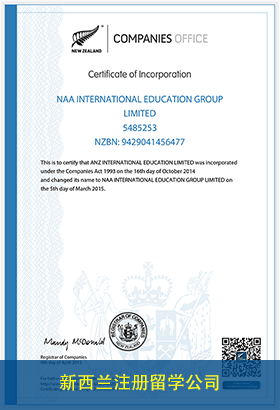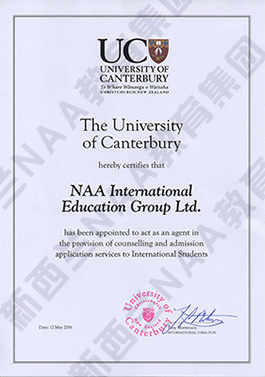坎特伯雷大学/The University of Canterbury
- 课程名称:
工程Bachelor of Engineering with Honours in Electrical and Electronic Engineering
- 课程级别:学士学位/Bachelor's Degree(7级)
- 课程代码:
- 学费:$41,000 NZD Per Year
- 学分:
- 开学时间:Expected February-2019
- 申请截止:
- 授课校区:The University of Canterbury
- 课程信息:
- five compulsory courses and
- four further Intermediate Year courses which vary depending on which Engineering discipline you want to specialise in. The Intermediate Year is followed by three Professional Years of study in one of the Engineering disciplines. Entry to the Professional Years is limited and based on your performance in the first year(s). These years will focus on the relevant knowledge and skills you will need in your chosen discipline. During your degree you will complete 100 days (800 hours) of practical work placement.
- new ways of generating power from renewable energy sources eg, wind, hydro and solar
- faster, cheaper and more reliable ways of sending information through mobile phone networks, the internet and new communications technologies yet to be developed
- more precise non-invasive medical instruments and scanners
- new nano-scale devices and materials that enable whole new ranges of products
- more efficient ways of using electric power, such as low-power lighting systems
- intelligent systems, such as autonomous cars or search-and-rescue robots, to improve people's lives while protecting the environment
- better ways of gathering information through sensor networks to help people like farmers and manufacturers make accurate decisions
- new ways of controlling the administration of medicines or the motion of rockets.
Course details
Summary
Electrical and electronic engineering deals with the application of electricity, electronics, and electromagnetism. It involves the generation, storage and use of electricity, as well as the design of integrated circuits, sensors and actuators to smart systems such as robots. This discipline involves the transmission and transformation of information using computers and communication networks, and the design of new electronic and computer products.
Electrical and electronic engineers have played a major role in the development of many technological advances, from personal computing and smart phones to autonomous vehicles and renewable electrical power. Digital television, unmanned aerial vehicles, robotics, medical imaging, and space exploration have all been the outcome of electrical engineering innovation.
Minor in Power Engineering
The minor in Power Engineering is available for those with a particular interest in specialized electrical systems, including electrical distribution and usage in devices such as generators and transformers.
Qualification structure and duration
The first year of the degree is called the Engineering Intermediate Year and comprises nine courses (120 points) which is made up of:
Career opportunities
UC Electrical and Electronic Engineering graduates are well prepared to join the technological revolution, with a wide range of career options. Some examples of these are as a consulting engineer, electronic design engineer, biomedical engineer, an entrepreneur or as a teacher/educator in industry, school or university.
Now and in the future, electrical and electronic engineers have the opportunity to develop innovative systems such as:
Entry criteria
NCEA entrance requirements - You should aim to have at least: 14 credits in Level 3 maths or calculus including both differentiation and integration; 14 credits in Level 3 physics; 14 credits in Level 3 chemistry. 18 credits are strongly recommended in all subjects.
International Baccalaureate (IB) Diploma -You will need to have: IB Score of 26 points; minimum of 4 HL (or 6 SL) in each of math's and physics (HL is recommended); minimum of 4 HL (or 6 SL) in chemistry.
Cambridge International Examination (CIE) - You will need to have: CIE Score of 140 points; maths and physics - D grade or better at A level or A in AS level; chemistry - D grade or better at A level or A in AS level.
Alternatively the Intermediate can be completed in more than one year (maximum of two years) with a minimum requirement of: CIE Score of 140 Points; D Grade at A-Level or C Grade at AS-Level in Mathematics; D Grade at A-Level or C Grade at AS-Level in Physics; preferably C Grade at AS-Level in Chemistry (discipline specific).
If you have not studied one or more of the required subjects, or did not achieve enough credits, but have University Entrance, you may consider an introductory pathway such as: taking a Head start summer course to catch up or; take an introductory course in specific Science subjects to start with (eg, MATH 101, PHYS 111 and CHEM 114). You could then take the Intermediate Year courses in Semester 2 and over summer, or do an extra year of study.
Other English language requirements: TOEFL PBT with a minimum score of 550 and TWE with a minimum score of 4.5; CCEL EAP Level 2 with a minimum C+ grade; CAE or CPE minimum score of 169 with at least 162 in reading, writing, listening and speaking; Pearson Test of English (Academic) - PTE with an overall score of 57 and no PTE communicative skills score below 50.
= 新西兰小学申请问题集 =







